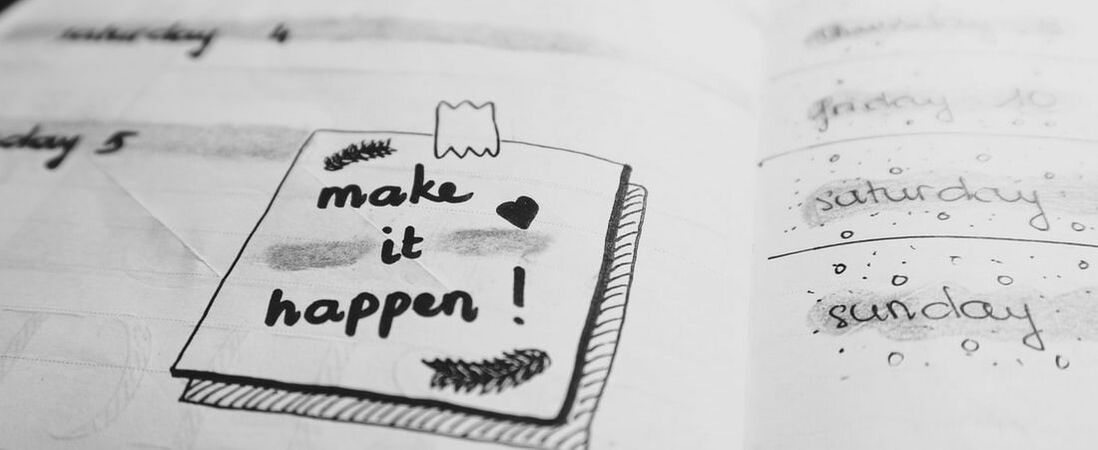|
Are you settling in your relationship, at work, or in life? Have you given up your desire and will to fight for more? Are you accepting the status quo?
Recently, I had a conversation with a lady, and she expressed how she was not expecting more than just the average rating on her performance assessment. Her argument was, that's what the company gives new people irrespective of how good they are. Her response got me thinking, how is she ready to settle for that and not fight it? In this blog post, we will explore what it means to settle for something and the reasons why you should not settle for less. What does it mean to settle for something?
Why do we settle for less? There are many reasons why women settle for less. Here are the most common reasons:
Five reasons why settling is not acceptable Let's explore some additional thoughts on why it is essential for you to want more. #1: You are destined for greatness I strongly believe that we are all on this earth for a purpose. We need to do everything in our power to live out our purpose. There is so much power that lies within you. It's time to start sharing your gifts with the world. #2: You are worth a lot more You have worked very hard to be where you are today. By settling for less, you are taking your sacrifices for granted. Get comfortable asking for what you are worth. Great things come to those who ask for more and work for it too. #3: You need to prove the "system" wrong As women, we may face some systematic challenges and sometimes we have to fight an uphill battle. One of the biggest motivators for me is proving people wrong when they try to tell me what I can't do or put me in a box. We need to make it a priority to show people all that we can do when we put our mind to it. #4: You are setting an example for the next generation One constant thought in my mind is, what example am I setting for my seven-year-old niece and other young ladies around me. Showing them that they can be anything they want to be, is my life mission. Being great role models is a significant responsibility. #5: You need to activate your dreams A lot of the dreams and passions you have can only come to live if you stretch outside of your comfort zone. Think about all the great things you want to do in life and plan to take action. Final Thoughts
Call to Action What would you do if you were not settling anymore? Imagine if you started thinking that you have no limits and no boundaries on what you can achieve. Great Resources
0 Comments
Let's start by celebrating all the things we juggle as women. We have a lot on our platter with work, business, family and life in general. It is normal to feel overwhelmed by everything we have to do daily. Also, it is sometimes hard to see what we achieved at the end of the day.
In my post, I will share five simple techniques that help me prioritize and achieve my goals. As a project manager, I am constantly required to prioritize tasks for myself, my clients and my team. Applying some project management principles to my private task prioritization has helped me master my task list. What are the benefits of setting priorities?
How to make things that matter to you happen #1: Identify your tasks Start by making a list of all you do and need to do daily. Write them down on a piece of paper or a digital notepad. For me, I have noticed that every time I start feeling overwhelmed, there is a task that I have not planned that is currently taking over my time and resources. The act of writing or updating my task list helps me remember what I really want to be working on. Tip: Use tools to track your task list. I use google keep for my task list as I can always update from all my devices. #2: Prioritize your task lists My favorite dictionary definition of setting priorities is "to decide which things are most important to do." To achieve your big goals, it is key to identify what tasks are very important and must be worked on before other tasks. Setting priorities helps you focus and get things done. The questions below can assist you in defining your priorities daily:
#3: Schedule your prioritized tasks This quote by Stephen Covey summarizes a key principle "the key is not to prioritize what's on your schedule, but to schedule your priorities." Scheduling your tasks increases the success rate of closing them. While you plan your tasks consider the following:
#4: Have a family meeting or talk to your friends This one might be shocking, to be successful you need the people around you to be on the same page as you. People that care about you will support you and help you complete your tasks. Especially if you have to work on tasks with your spouse, friends or partners, it is essential to ensure that they are aware of your priorities and when you plan to complete a task. Make it a practice to keep your support group updated. Tip: Create a family calendar or share dates with key people in your life. #5: Adjust your priorities and track your progress As things change and your priorities shift, remember to update your list continuously. Your ability to adapt to life's changes is crucial for success. When you set priorities, you work with the assumptions you have at that particular time. As new things happen, be open to change your priorities. To check if the priorities you set are the right ones, track the progress you are making and the rewards you are seeing. This process also lets you know if you set the right priorities and are taking the right action. Tip: Check your top 5 priorities regularly, at least monthly. Call to Action What are your top 5 priorities at the moment? Write them down. Final Thoughts
Great Resources Creating vision boards is a topic that is widely discussed at the beginning of a year. Personally, I have not created a vision board with pictures before. The main reason is that I am more of a structured person and the "arts and craft" nature of vision boards is less organized than I like things to be. However, a few months ago when I started thinking about some financial goals that I want to achieve over the next years, I felt a vision board would be a great way to visualize them.
In this blog post, I will share the benefits of visualizing your goals and some of the questions I asked myself while I created my financial vision board. This post continues the Her Finances series where I write about being financially independent, financial planning, adopting healthy financial habits and taking charge of your finances. What are the benefits of creating a financial vision board?
Create your own Financial vision board Let me start by saying that it is important to choose the type of visualization that works best for you. Personally, I find text the best way to visualize my goals. Here are five questions to ask yourself while you create your vision board: #1: What are some big financial goals you want to achieve? The main task here is creating an overview of the different areas of your finances that you want to work towards. Some of the things that come to mind are: create an emergency fund, grow savings, be debt free, create additional sources of income, invest in property, save for your children or grow long term investments. #2: What is the timeline you want to work towards? Typically a vision board is created for a year. However, being that some of your big financial goals take more than a year to achieve, it is essential to outline a realistic timeline. The objective is to commit to a date by which you want to achieve your goals. Each goal can have a different due date. I encourage you not to overthink the timeline, write what you think and adjust as you know more. #3: What are some of the things you want to start doing or do differently? Now that you know what you are working on determine which new financial habits you want to adapt to achieve your goals. For some inspiration, check out my previous blog post Good Money habits for 2019. I like the saying "Don't keep doing the same thing and expecting different results." #4: What kind of support do you need? Especially if you are working on big goals, it is essential to look for external support. This serves the purpose of providing the financial knowledge that you don't have as well as gaining support through the process. Your support can be in the form of a financial experts, trusted friends, trainings, books or podcasts. #5: How are you going to track your progress? Think about the small steps you will take and how you will measure the progress you are making towards achieving your goals. It is important to celebrate your accomplishments, and the only way you'll know what you have achieved is if you continuously track your progress. Final Thoughts
Call to Action What financial goals do you want to work on? Define your goals When do you want to achieve them? Determine your timeline Great Resources  Social media has become a central aspect of our lives. Often it is the first thing we check in the morning, multiple times during the day and last thing we check at night. Going through a social media cleanse especially during this time of the year seems like a vogue thing to do. Imagine if we learned to manage our social media use and were more intentional about whom we let influence us. In this blog post, I will share some facts about the time we spend on social media and the effects it has on our lives. So you don't feel judged, I will get personal with my journey and the tools I used to have a more healthy relationship with social media. The motivation for this post came from a conversation I had with one of the great women in my community. How much time do you spend on social media? Let's start with some statistics on how much time we spend on social media: Mediakix calculated average time spent per day on YouTube (40 minutes), Facebook (35), Snapchat (25), Instagram (15) and Twitter (one) and projected those figures out over a lifetime, arriving at a total of five years and four months. The data shows that we are investing about 2 hours every day in something that does not yield any returns. This valuable time could be spent elsewhere, for example sleeping more or learning something new. Do you identify with any of the following?
Why should you manage your social media "use"? Some of the tangible benefits that you can enjoy when you manage your time spent on social media include the following:
MC's Story Being that I was very far away from my family and friends, social media felt like the only way I could keep in touch with everyone and not feel too isolated in Germany. In the early 2000s, the social networks I used were Yahoo/MSN/ AOL messenger, Hi-five, MySpace and then Facebook came along. I was an early adopter of all communication channels as I wanted to stay connected to my people. For about five years, my use of social media platforms was normal. However, with the introduction of smartphones my usage spiked and social media was taking over every free minute I had. As many of you know, I left Facebook for about seven years. I needed to take a break from Social media and learn how to make connections in different ways. Let me start by saying - I came back on Social media in 2017, because I am ready and mature. I want to share the reasons I had to make a change and lessons I learned about using social media wisely. Problem #1: I was comparing myself to others Coming to this realization was shocking to me because I never thought I was that person. Growing up with my twin I learned to accept that although we were born on the same day, we were very different individuals on different journeys. However, when it came to seeing my Facebook friends progress, I felt very different. Everyone seemed to be graduating from university, getting married, having babies before me. I felt as if I wasn't making enough progress in my life and became very impatient. Tool #1: Stop Comparing your life to others Well, I grew older and more confident in my journey. I learned to appreciate and celebrate my achievements and where I am in life now. My journey is different, and it's great. I don't compare myself to what people chose to clean up and post on social media. Problem #2: I wasn't sure what I wanted to share and what not Especially in hard times, I felt the need to share my heart on Facebook mainly for other people’s reactions and comments. My approach was to complain and look for sympathy rather than have a more productive conversation sharing my learnings and experiences. Tool #2: Share your deepest thoughts with people around you. Social media should not be the first place you run to with your issues or thoughts. Facebook friends are virtual and far :). Confide in your support community and share your experiences. Problem #3: I neglected making personal connections and relied only on virtual connections Being that most of my social media friends were in many other countries, social media was the only way for us to connect. We kept our relationship very superficial and hardly discussed deep concerns or experiences Tool #3: Invest more time in your personal relationships. When I started making more local friends, I felt much better. Real friends whom you share your real life with are worth more. Problem #4: I was spending too much time on Facebook. Facebook became a distraction for me. I checked my feed when I woke up and multiple times during the day. It didn't stop there; I also shared updates, made comments and interacted with other people's posts for extended minutes. Working a full-time job and studying for my Master's degree, I had to use my time wisely and be more productive. Tool #4: Remove social media apps from your phone and switch off notifications. I want to be able to go on social when I feel like and spend the right amount of time. Being conscious of how much time I spend on social media is a priority for me. Problem #5: I didn't feel joy from Facebook It took me a while to realize that I felt negative emotions when I spent time on Facebook. I hardly came away feeling empowered. Although I felt down, I still went back. Tool #5: Be aware of the emotional effects social media has on you. Guarding your mental health is essential. These days when I check Facebook, I'm happy to reconnect with people, share what I want but it doesn't define the way I feel about my life. Be intentional about whom you follow and the groups you subscribe to. As you watch the people, you surround yourself with in real life also be careful about whom you surround yourself with online. Final Thoughts
Call to Action Explore your relationship with Social media
Great Resources
While I was reflecting on my first 4 years in the US, a few things came up that I still don't fully understand. In the post, I'll be sharing some "special" things about living in the US. I'm building on my previous post 10 things I wish someone told me before I moved to the US.
This is a fun post. I needed a good laugh. And so you know - I have been having a great time so far in the US, I just feel like there are a few things that we need to address. Am I the only one the feels this way? #1: Why is there always some sports events on TV? I wonder when the sports seasons start and end. It seems like there is some sporting event ongoing all the time. From American football to basketball to baseball and all others. There is definitely an excess of sports compared to Germany where the Bundesliga takes breaks in summer and winter. #2: Where are all the good bakeries? On some days all I want is a delicate slice of cake or hearty German bread. All of which cannot easily be found here. You may think this is trivial, but after four years I am still looking for my favorite Bakery. Living in Germany spoilt me with all the great bakeries on every street corner. #3: How can you say something is a "world" event when it's only celebrated in the US? Let me just start with "World series for Baseball" - who is the world referenced here? Recently people were talking about an event that happened in the US that the whole world heard about – and my response was "I was in Germany, and I didn't hear about it." I make it a point to remind people the US is large but not the world. #4: What do these sports metaphors mean? If you use a sports metaphor in a meeting, you are assuming we all have the same background and enjoy sports and much as you do. Does hitting a home run mean our project is successful or that we are running around the field. I smile every time someone expects me to understand a sports metaphor. In my defense I know - "it’s a goooalllll" means we are winning. #5: When will banking be brought to the new digital age? :) All banking transactions should be available online including International transfers, and bank transfers should be instant within the same bank at least. If I have to fill out a paper form for a bank transaction, you lose me. I still don't get the concepts of cheques. Every time I get a cheque I feel clueless. #6: Why is this country so big? In my four years here, I have visited only 4 of the 50 states. I wonder if I will ever be able to visit all the states. California on its own is so big and provides a variety of things to see. I'm blessed to live where I do, and I want to see it all. I just don't know how. #7: Why is the milk jug that big? This one is on this list, most likely because we are a two-person household. I'm still shocked when I see the size of the milk jug in the stores. I always wonder who is able to drink a whole gallon of Milk. I'm more comfortable with the one-liter packs. Don't get me started on the size of grapes or apples here. #8: Why does the University you went to matter? Especially since I studied in Germany, I really can't contribute to conversations about colleges or universities. I wonder if the knowledge and experiences you gathered should matter more than where you got trained. Especially with the recent events in the news, it may help for us to get to a place where it no longer matters. #9: Why don't we use universal metrics? It should be easy for me to tell you the temperature. No, it's not that easy if temperatures in Fahrenheit mean nothing to you. I am comfortable telling people the temperature in Celsius and letting them convert for me real time. Knowing miles versus kilometers is one I thing I can get the hang of. However, pounds versus grams is one I still have to think about every time I buy meat. #10: Why do political campaigns take so long? When I moved here in early 2015, the campaigns were just kicking off for the 2016 election. I was sure the elections were in Nov 2015 because of how many conversations were being had. And now it's all happening again. Politicians are touring the country with about 22 months to the 2020 elections. It is all in my face 24/7 and I don't even get to vote here. Final Thoughts
Call to Action What are some things you don't understand about the place or culture you live in? |
AuthorMarie-Christin Anthony Categories
All
Archives
November 2023
|






 RSS Feed
RSS Feed